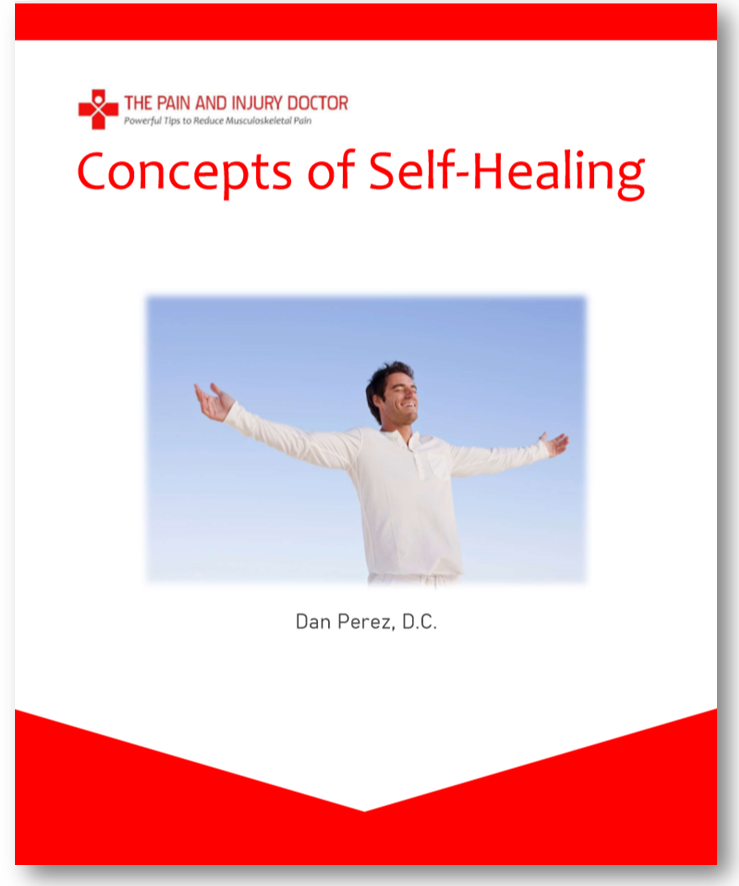As I transition out of mid-life, I face the inevitable things that happen at this stage of one’s life: parents, aunts and uncles aging and dying; birth of grand-nieces and nephews; and subtle changes in my body and physical ability. As someone with a professional background in healthcare, I can’t help but to analyze the health aspects of these mortal events.
The first I shall mention involves my mother and aunts (her sisters). In the gene department, I’d say they acquired good ones for longevity—mom is 88, and her sisters are in their mid-90s. However, their health status is starkly different. Yes, mom is a few years younger, but in terms of physical ability and vitality it’s as if she’s 20 years younger. One dear aunt has just weeks to live. She is barely ambulatory, and she is fading. Her body is frail, and her mind is diminishing. There were beginning signs of organ system failure during the past year – wounds not healing well; constipation, and swelling in the lower limbs.
The other aunt suffered several falls in the past year, breaking her leg each time, and is experiencing symptoms of congestive heart failure—fluid in the lungs and difficulty breathing. Both aunts require 24/7 assisted living at the time of this writing.
And mom? She still drives, speaks loudly and coherently (although her hearing is declining but not terribly); is able to vacuum and clean her home where she lives alone (dad passed in 2016), and even work in the back yard raking leaves, pulling weeds, and watering plants. She watches a lot of TV in the afternoons and, after chores and dinner, late into the night, yet is able to do all these things. She shows no signs of slowing down.
All three women fortunately did not develop dementia in their advanced age. Mom shows no signs of it at all, and I am hoping and praying I have those genes!
My dad, on the other hand, developed dementia during his last five years alive, and it played a role in his passing from an unfortunate hospital accident.
I attribute my mom’s stronger vitality, compared to her older sisters, to two things:
Give to Others. Stay Socially Connected. Avoid Isolation
She sends birthday cards to all her children (four, including me) every year, ever since we moved out of the house to go to college–without fail; on-time, every time.
For me, it’s birthday card every year for the past forty years. She does the same for her grandsons (3) and granddaughter, and now great-grandson. She’s very giving and considerate of others.
If you read authors in the Self-Improvement field, such as Brendan Burchard and Steven Covey, one of the common themes is giving. Something good happens when you give. The gesture is basically about giving out love. But to be able to give love, you must first be at peace with yourself, and have abundant love for yourself and your life. It’s like money – you can’t give others money unless you have money yourself to begin with; enough to spare.
When you love yourself, you aren’t sad; you aren’t depressed and most of all you value yourself so you take care of yourself. You don’t do things that will hurt yourself in any way and as a result, you achieve mental health, which promotes physical health. So believe me when I tell you that doing something as simple as sending someone a birthday card for 40 straight years carries a lot more meaning that it appears. It’s all about your attitude and outlook in life, which drives your actions. I do believe in the power of love. It’s one of the mysteries of being human.
My aunts, however, spent most of their lives isolated. Their spouses passed away when they were relatively still young and they never remarried. They sort of grew into living mostly solitary lives, over decades. I suspect that even with losing their spouses early on, that their isolated life was mostly due to their personality—their nature, which developed in accordance with their mindset. They are not as outgoing as my mom, and appeared to not mind being alone; at least that’s what they thought.
Do Whatever it Takes to Stay Physically Active, As Long as You are Able
The second thing that separates my mom from her sisters: she was consistently physically active all her life, and still is to this day. She is purposeful about it: she plans out her day the day before and has a set agenda– visit a friend, get some groceries, buy household things, go the bank; work in the yard, clean the house, and so on. She often mentions to me how she sweats in the back yard after doing some chores (she lives in Florida where the humidity and heat can be quite uncomfortable in the summer). She delivers food to friends who live nearby, out of the kindness of her heart. And, she goes to church regularly, where she gets most of her social interaction. Bottom line: my mother likes to stay busy and enjoys doing physical work at her age.
Compare this lifestyle to her sisters: neither was physically active, aside from going out to run errands when needed. They spent hours sitting on the couch and watching TV much of their day, for decades — a wholly passive behavior (I don’t want to say activity) both mentally and physically.
Neither of them worked a job: one aunt lived with her adult children, and the other was supported by her spouse’s death benefits. Neither toiled in their back yard. I doubt if they walked around the neighborhood for exercise, either. Neither had a hobby that kept them engaged in something. Today, their health is in steep decline.
The Lesson Here
So, based on this real-life study, if you desire to live a long, quality life (not a long life being infirm) learn from my mother: it starts with your mindset/attitude. Your mindset drives your actions. Your actions directly determine your mental and physical health – it’s that simple.
When you have love for yourself and your life, you naturally want it to last as long as possible and as a result, your subconscious mind guides you in doing things that maintain your health and extend your life—avoiding destructive thoughts (envy, hate, anger, resentment, regret); eating healthy, getting enough sleep, and exercising regularly.
When you don’t have love yourself and your life; OR you fail to take a moment to affirm it often, you take life for granted. You become undisciplined with your actions. You don’t have purpose. You take unhealthy, dangerous risks – spending too much time on the internet and social media; developing addictions; eating too much sweets and junk food and not enough whole, natural foods; consuming alcohol excessively, and avoiding exercise. Perhaps drugs and tobacco enter the picture, too. Then, this lifestyle becomes entrenched and harder to get out of because you become overweight, have low energy, and are in a negative mood. Exercise and socializing with others are the last thing on your mind, and you avoid both. You eat food that may taste good, but doesn’t nourish your body. These actions stress your body, and payback is imminent. Unless you have good longevity genes like my mother and aunts, you can expect your lifespan to be shorter than what it could be; and/or, you can expect to live with chronic illness, severely impacting your quality of life — not a great way to spend your golden years.
I will add to this that one can make change for the better at any age. Of course, the sooner in life, the better. As a person ages, it is more difficult to change adverse behavior, due to the thought patterns that take root in the mind, which are basically the habits and rituals that give one short-term satisfaction. But, it’s not impossible. It just requires digging in deep, and having that desire and determination to change. Loving life, and wanting to experience it for as long as you can. For many people, a wakeup call has to occur before they take action, like a friend dying unexpectedly from a heart attack. Don’t wait for that to happen, because if you do, it may very well be your sudden illness or death that shakes a friend into action.
Once you change your mindset, the next challenge before you is execution. Here are a few tips:
- Make small, gradual changes that are easy to accomplish. This sends a positive signal to your subconsciousness, and lays the groundwork to build upon. Examples: buy healthy foods for the week every Sunday at 6:00 PM; walk 3x around your block Mondays, Wednesdays and Fridays; etc.
- If you slip and revert to an old, unhealthy habit don’t be too hard on yourself. Definitely do not throw in the towel. Get up, and keep trying. It’s all about consistency in effort.
- Create simple health routines. Routines are things you do the same time of the day, every day. Stay on a routine long enough, and you won’t have to remember to do it; it will come naturally.
- For your physical activity, schedule it on your calendar. Hold yourself accountable. Better yet, recruit a close friend to be your accountability partner. He or she will have the role of encouraging you to stay on track.
- 20 minutes of exercise a day is better than an intense, 2 hour exercise every other week. Consistency is more important than intensity.
- There are exercise options for every age and ability. Exercise doesn’t necessarily require sweating gobs of sweat; getting out of breath, or pounding your joints. You need to learn what’s right for you. Stay tuned for lots of examples of physical exercise for those over 40; those who are not physically fit; are overweight; or have some form of physical disability.
I cannot stress enough the importance of staying physically active to living a long, quality life. Humans, like all animals, are designed by nature to move frequently. When you don’t move enough, muscles atrophy and support to your spine and joints weakens, inviting injury and joint degeneration. Your heart, being a muscle, becomes weak so oxygen and nutrient delivery to your cells, including your brain cells, becomes sub-optimal. Your blood sugar rises because it isn’t being burned at a fast enough rate, leading to obesity and diabetes, and even Alzheimer’s disease.
Lack of physical activity even promotes gut disease, including constipation. Digestion benefits from physical activity, since your intestines are muscles themselves that require oxygen and nutrients delivered by your heart.
Bottom line, use it or lose it—being sedentary; failing to engage in consistent, moderate physical activity for years will cause a decline in your health that will be difficult if not impossible to reverse. Make it a priority in your life.
To complicate things, technological advancements have reduced our need to be physically active, and if it weren’t for advances in medicine and sanitation, human lifespan would probably be in the 40s especially with the abundance of and easy access to high-calorie, low nutrient processed food.
That’s it for now. It’s a new year, a time when people contemplate their lives and their future. If you are someone who needs to make a change, now is the best time. Stay tuned for more advice on staying healthy, vibrant, and out of pain and extending the lifespan of your body.








